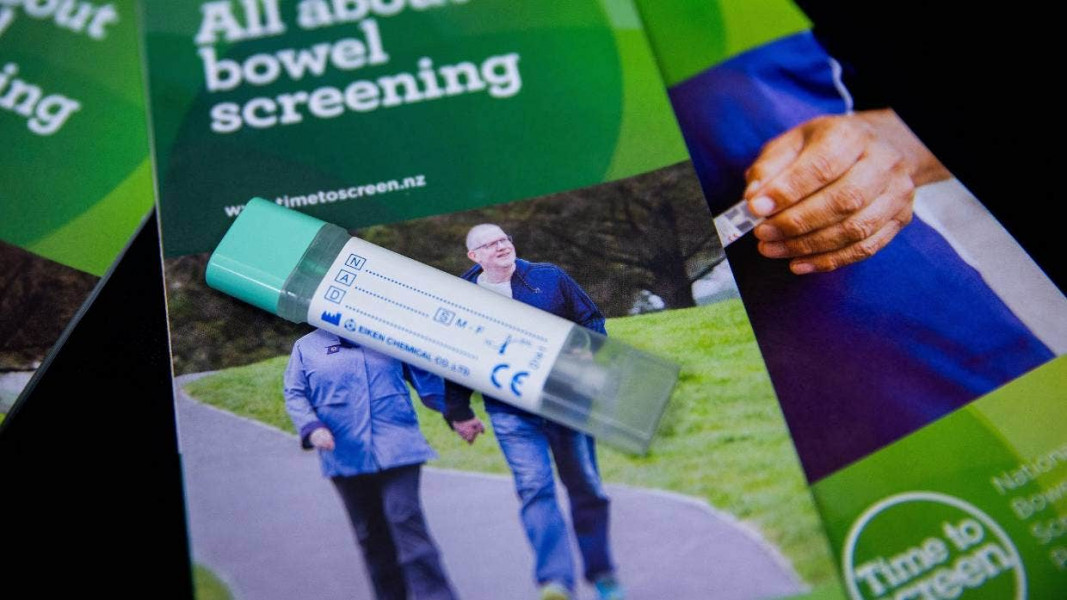Free bowel screening now available across Aotearoa
Free bowel screening now available across Aotearoa

Bowel screening is being offered to men and women aged 60 to 74 years right across Aotearoa, and from from mid-2023, Māori and Pacific peoples will be able to start free bowel screening from the age of 50.
At Budget 2022, it was announced over $36 million across four years would be dedicated to the shift in age for screening.
More than 1000 New Zealanders die from bowel cancer every year, and over 3000 are diagnosed.
Associate Health Minister Hon Peeni Henare says high rates of Māori and Pacific peoples made up those numbers.
"A higher proportion of bowel cancer occurs in Māori and Pacific peoples before they reach 60, at approximately 21 percent, compared to 10 percent for non-Māori, non-Pacific peoples.
“This $36 million investment from Budget 2022 will lower the starting age for bowel screening for these groups from 60 years old to 50 to help ensure that the screening system reflects these statistics.
“This initiative now means this age group will be able to access screening when they need it the most and is an example of the system changing to better meet the needs of whanau," Minister Henare says.
Meanwhile, Minister for Pacific Peoples Hon Aupito William Sio says introducing bowel screening earlier will save lives.
“Pacific people who have bowel cancer are more likely to die from their cancer compared to non-Pacific people.
"Their cancer is usually found later when it is difficult to treat.
"Increased participation, early detection and early treatment can result in a 90 per cent rate of five-year survival," he says.
The bowel screening programme has been rolled out progressively, and with the launch of the programme in Bay of Plenty in May, is now available nationwide.
Screening as part of the National Bowel Screening Programme is free for those who are eligible, as are any follow-up tests or treatment.
Around 835,000 people in the eligible age group are invited to take part every two years.
Approximately 500-700 cancers are picked up each year through the programme, and thousands of polyps which might have become cancer are removed.
The bowel screening test is quick and simple, and done at home - people are sent an invitation letter, a consent form and a free bowel screening test kit.
The National Bowel Screening Programme uses a faecal immunochemical test (FIT).
It can detect tiny traces of blood present in a small sample of person’s bowel motion, which may be an early warning sign something is wrong with their bowel.
A positive test result does not necessarily mean a person has bowel cancer.
Small amounts of blood in a bowel motion are most commonly caused by polyps, or other minor conditions such as haemorrhoids (piles), which can easily be treated.
A positive test means further investigation is required, and this will usually be a colonoscopy (an internal examination of the large bowel with a small camera on a flexible tube).
Screening is for people who do not have symptoms of bowel cancer.
Anyone with symptoms should see their doctor.
Common symptoms of bowel cancer may include:
- a change to normal bowel habit that continues for several weeks
- blood in the bowel motion
Although these symptoms are usually caused by other conditions, it is important to get them checked by a doctor.
More information about the National Bowel Screening Programme can be found on the Time to Screen website.
For information in te reo Māori, Samoan, Tongan, Niuean as well as other languages, visit HERE.
